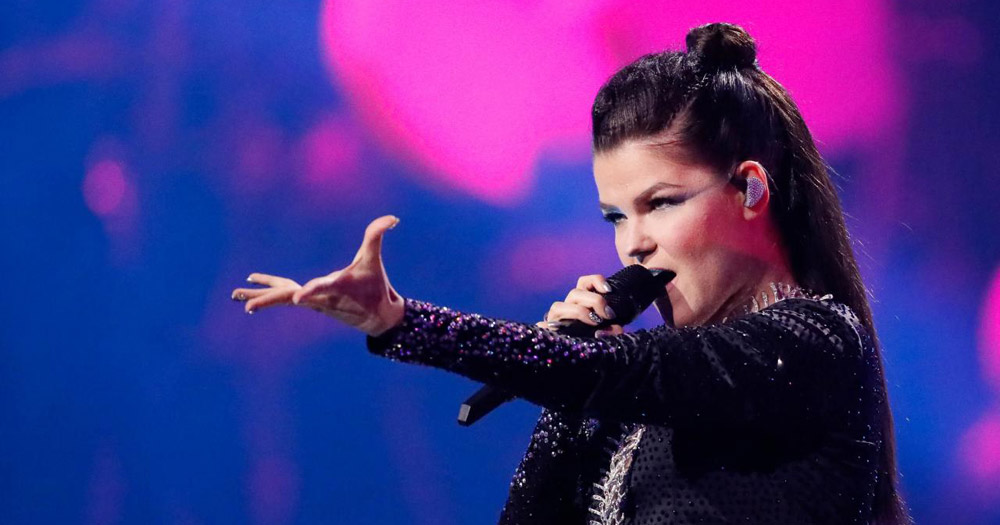“Eurovision’s acceptance of all things related to queer sexuality also reconfigures ideas surrounding sexual identity, particularly for the song contest’s international fans.”
It’s that time of the year again, what many journalists and fans have coined ‘Gay Christmas’ – the Eurovision season! The association between Eurovision and gay culture is, of course, not new. I like to think Eurovision’s ‘coming out’ takes us back to 1997 in the form of the Iceland entry. The song was entitled ‘Minn Hinsti Dans’, its singer was Páll Óskar was openly gay, and he performed his electro-pop track sprawled on a leather sofa, ironically accompanied by an entourage of scantily clad ladies in fishnet tights and short leather skirts. It was a breakthrough in Eurovision, as it championed the non-normative and extraordinary. It did however only receive a measly 18 points, mostly from televoting countries, such as Sweden and the UK. This was the first year that this form of voting was introduced, and we would soon see audiences vote in favour of performers who stretched the boundaries in representations of gender and sexual identity.
Eurovision is a fantastic platform for giving individuals the freedom to express themselves. The event produces an atmosphere of ambiguity, where anything goes, which intersects with competing nations desperate to make a visual statement that will impress audiences and juries. There are also wider statements that nations make in terms of their pro-European outlook, in particular amongst nations in Eastern Europe.
Last year’s Eurovision was hosted in Kyiv, Ukraine. The organisers wanted to make the city internationally appealing for LGBT fans and tourists, so they rebranded lit Kyiv’s historic Russia-Ukraine friendship arch with the colours of the rainbow flag. This attracted criticism both domestically and in Russia, however the arch made an appearance during the Eurovision show itself, with a video of Ukrainian drag act Verka Seduchka (who came second in 2007 with ‘Dancing Lasha Tumbai’) as the culprits painting the arch. This represented Ukraine as leaning towards Western European political ideology, while identifying those countries who suppress LGBT citizens as ‘un-European’, even though within Ukraine itself there is still has a long way to go in terms of acceptance of LGBT individuals.
Eurovision’s acceptance of all things related to queer sexuality also reconfigures ideas surrounding sexual identity, particularly for the song contest’s international fans. Through my own research interviews, gay fans have identified how their interest in the contest allows them to meet other gay fans. Some said that visiting mainstream gay venues caused them anxiety with regards to how they dress and what they look like, or because they perceive gay bars and clubs as highly eroticised spaces. Gay Eurovision spaces provide an alternative, where fans can gain access and experience wider LGBT culture.
For some younger Eurovision fans, social media allows them to talk about LGBT issues and share their experiences in coming to terms with or struggling with their sexuality. These fan spaces are an alternative entry point into LGBT culture and provide a sense of belonging, particularly when gay bars are perhaps less accessible.
Social media is also a place were men share and express their desires towards male Eurovision artists. Similarly, many queer fans have expressed their love for this year’s Finnish representative, Saara Aalto (pictured above), who was a runner-up in the X Factor in 2016. Aalto, an out and proud lesbian, is performing the song ‘Monsters’, a high-energy pop banger about self-empowerment. For many fans, she has become an emblem for queer solidarity.
The Irish entry this year takes a more head-on approach in addressing same-sex love. ‘Together’, performed by Ryan O’Shaughnessy, is a story of the conflict and struggles in relationships. His performance features two young men dancing intimately around the stage, making the statement, ‘love is love’. This performance secured a position in the final for Ireland for the first time since 2013.
This is the power of Eurovision. It provides visibility and representation to groups of people who may not necessarily be represented elsewhere. It also identifies progression for LGBT rights as central to the idea of being European.
Jamie Halliwell is a PhD student at Jamie Halliwell, is PhD student at Manchester Metropolitan University and has carried out research around the Eurovision Song Contest
© 2018 GCN (Gay Community News). All rights reserved.

comments. Please sign in to comment.